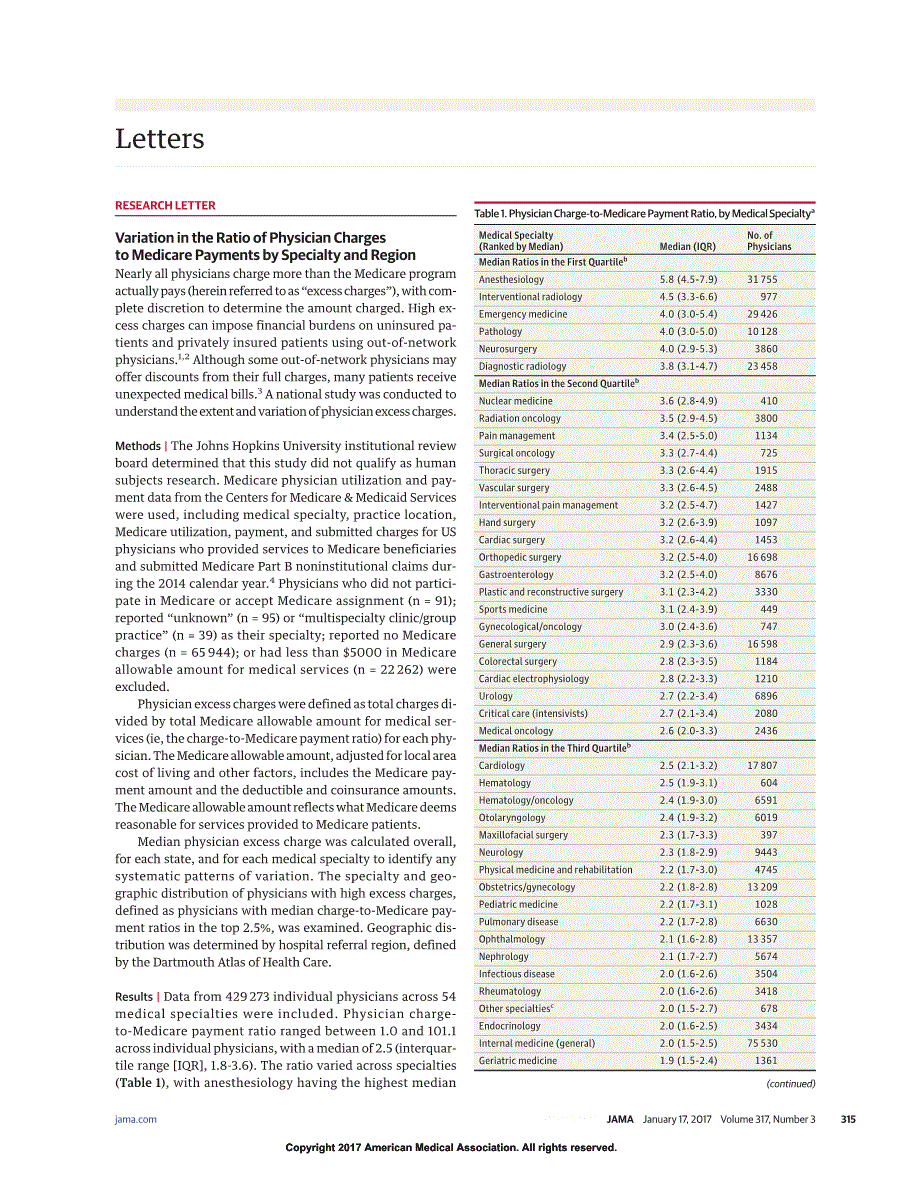- Joined
- Nov 23, 2012
- Messages
- 692
- Reaction score
- 322
http://www.consumerreports.org/medi...ely-to-stick-you-with-surprise-medical-bills/
Who Charges the Most—and Least
The study looked at physician charges across 54 specialties. It found that the average anesthesiologist, radiologist, emergency physician, pathologist, and neurosurgeon charge for their services at least four times what Medicare reimburses. In anesthesiology, the average charge was almost six times as high as what Medicare pays.

http://jamanetwork.com/journals/jama/article-abstract/2598253
Who Charges the Most—and Least
The study looked at physician charges across 54 specialties. It found that the average anesthesiologist, radiologist, emergency physician, pathologist, and neurosurgeon charge for their services at least four times what Medicare reimburses. In anesthesiology, the average charge was almost six times as high as what Medicare pays.

http://jamanetwork.com/journals/jama/article-abstract/2598253